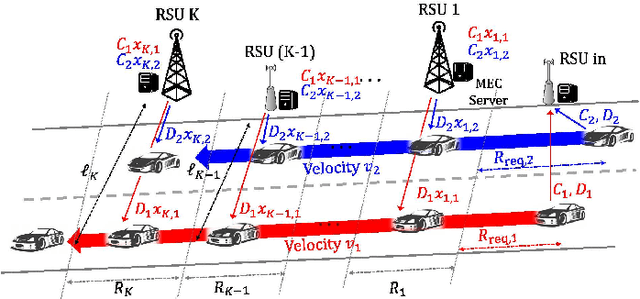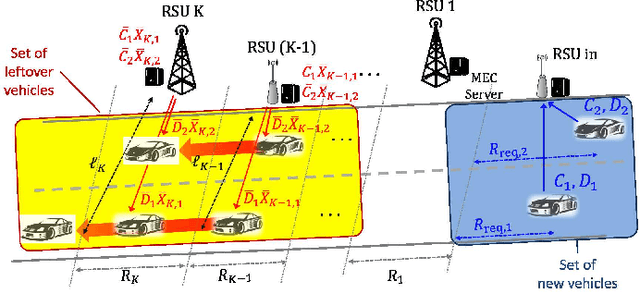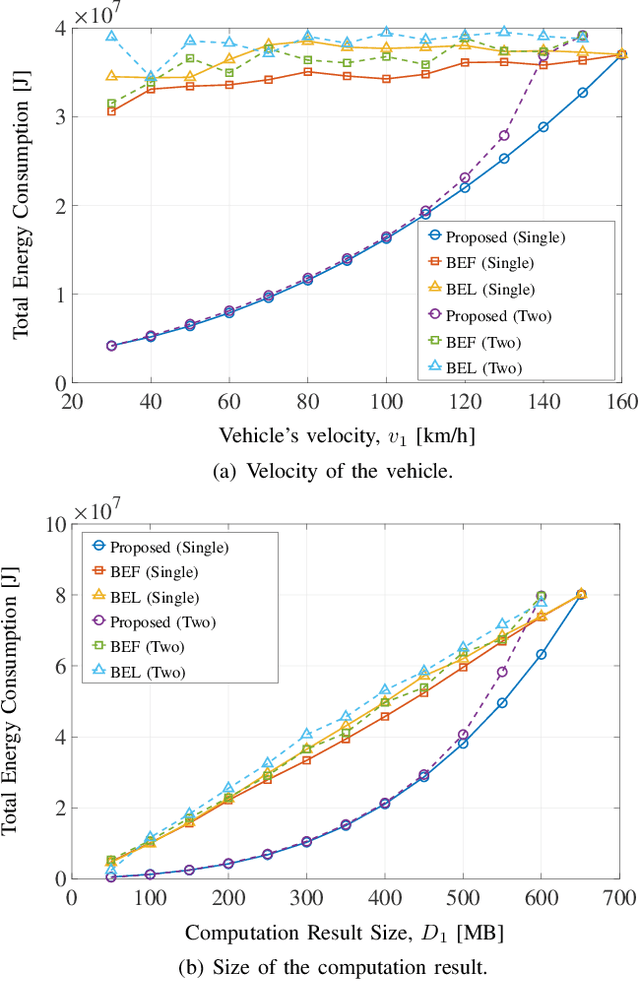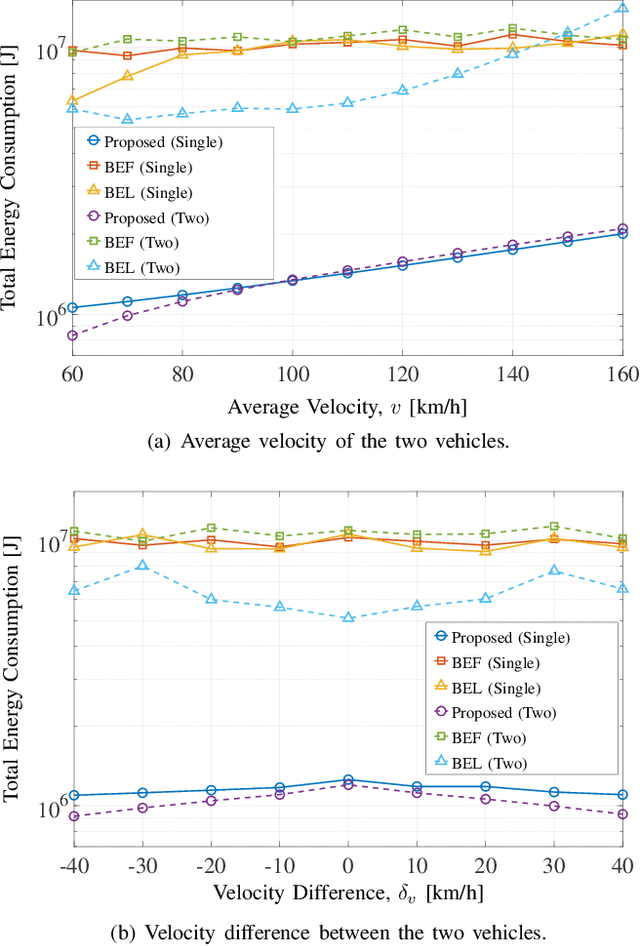Energy-efficient Cooperative Offloading for Edge Computing-enabled Vehicular Networks
Paper and Code
Nov 01, 2021



Edge computing technology has great potential to improve various computation-intensive applications in vehicular networks by providing sufficient computation resources for vehicles. However, it is still a challenge to fully unleash the potential of edge computing in edge computing-enabled vehicular networks. In this paper, we develop the energy-efficient cooperative offloading scheme for edge computing-enabled vehicular networks, which splits the task into multiple subtasks and offloads them to different roadside units (RSUs) located ahead along the route of the vehicle. We first establish novel cooperative offloading models for the offline and online scenarios in edge computing-enabled vehicular networks. In each offloading scenario, we formulate the total energy minimization with respect to the task splitting ratio, computation resource, and communication resource. In the offline scenario, we equivalently transform the original problem to a convex problem and obtain optimal solutions for multi-vehicle case and single-vehicle case, respectively. Furthermore, we show that the method proposed for the offline scenario can also be applied to solve the optimization problem in the online scenario. Finally, through numerical results, by analyzing the impact of network parameters on the total energy consumption, we verify that our proposed solution consumes lower energy than baseline schemes.
 Add to Chrome
Add to Chrome Add to Firefox
Add to Firefox Add to Edge
Add to Edge